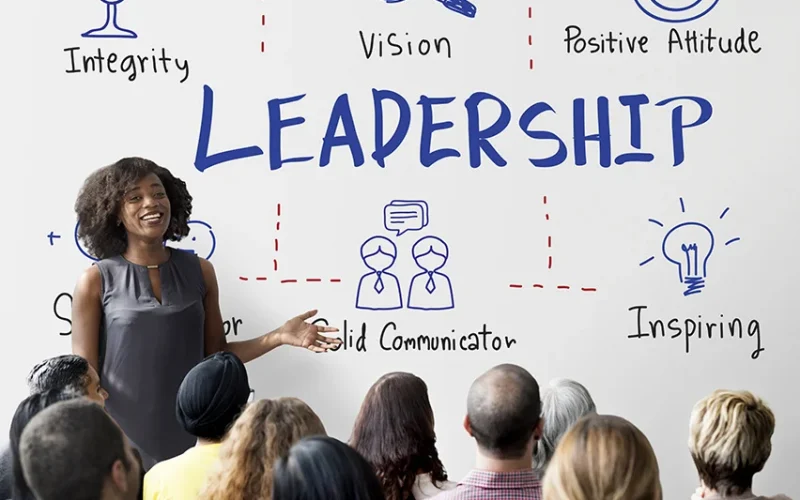Leadership is the life of any organization’s success; it is a guiding force that inspires teams, drives innovation and positions the company to achieve its goals. To have great leaders requires development. So Leadership development should be taken as a crucial part of every company.
Leadership development is an ongoing process of equipping individuals with the requisite skills, knowledge, and character necessary to excel in leadership roles. It’s not a one-time training; rather, it’s a strategic investment in people, fostering their growth and preparing them to take on a bigger responsibility within the organization.
In this write-up, we will take a deep look at what leadership development is, its importance and the implementation strategies and programs offered.
Table of contents
- What is Leadership Development in an Organization?
- Why is leadership development important?
- What are the Key Components of Leadership Development?
- What are the Processes of Leadership Development?
- What are the Benefits of Leadership Development?
- How can we improve leadership skills?
- Frequently Asked Questions
- Conclusion
- References
- Recommendations
Read Also: Top 20 Pet-Friendly Colleges in the World | 2024
What is Leadership Development in an Organization?
Leadership development in an organization is the systematic process of nurturing and enhancing the skills, qualities, and competencies of individuals within the organization to prepare them for leadership roles.
It’s not just about appointing leaders but creating them through a structured approach.
Read Also: 45 Gorgeous Dorm Room Ideas You’ll Want to Copy
Why is leadership development important?
Leadership development is like the backbone of an organization. It’s the foundation upon which the entire structure stands. Here’s why it matters:
Cultivating Future Leaders:
By investing in leadership development, organizations ensure a steady supply of capable leaders, reducing the need for external hires.
Boosting Employee Morale:
When employees see opportunities for growth and development, their job satisfaction increases, leading to higher retention rates.
Enhancing Adaptability:
In today’s fast-paced world, leadership development equips individuals with the skills to adapt to changing business environments.
Improving Performance:
Effective leaders can steer their teams toward success, resulting in improved overall organizational performance.
Fostering Innovation:
Leadership development encourages creative thinking and innovation, which can be a game-changer for any organization.
Read Also: Top 30 Colleges Not Requiring Covid Vaccine For Fall & Winter |2024
What are the Key Components of Leadership Development?
To understand leadership development fully, we need to break it down into its key components:
Leadership Training Programs
These structured courses impart essential leadership skills, such as communication, problem-solving, and decision-making.
Coaching and Mentoring
One-on-one coaching and mentoring relationships help aspiring leaders learn from experienced ones, gaining valuable insights.
On-the-Job Learning
Real-world experiences, such as taking on challenging projects or new responsibilities, play a vital role in leadership development.
Feedback and Evaluation
Regular feedback and performance evaluations identify strengths and areas for improvement.
Skill Building
Leadership development includes building skills like emotional intelligence, adaptability, and conflict resolution.
Read Also: Should College Be Free: YES/NO? Pros And Cons
What are the Processes of Leadership Development?
So, how does leadership development actually happen? It’s not a one-size-fits-all approach; rather, it’s a journey:
Identification:
Potential leaders are identified based on their skills, performance, and potential.
Assessment:
Their strengths and weaknesses are assessed to create a personalized development plan.
Development Plan:
A tailored plan is designed, outlining the learning methods and resources required.
Implementation: The plan is put into action through training, coaching, and practical experiences.
Feedback and Refinement:
Continuous feedback helps in refining the development process.
Read Also: What Happens During College Orientation? 2024 Guiding Tips
What are the Benefits of Leadership Development?
Leadership development doesn’t just benefit individuals; it’s a win-win for both employees and organizations:
Employee Satisfaction
Employees feel valued and motivated when organizations invest in their growth.
Increased Productivity
Effective leaders lead to more engaged and productive teams.
Better Decision-Making
Leadership development hones decision-making skills, resulting in better choices at all levels.
Succession Planning
Organizations can seamlessly fill leadership positions from within.
Adaptability
Leadership development ensures organizations can adapt to change effectively.
Competitive Advantage
Companies with strong leaders have a competitive edge in the market.
Read Also: What to Wear to a College in the USA: 2024 Dress Code Tips & Ideas
How can we improve leadership skills?
Self-Awareness:
You need to identify your strengths and weaknesses as a leader and areas for improvement. Understand what motivates and challenges you as a leader and the values you possess and wish to instil in your team.
Develop Your Skills:
Take advantage of the many online and in-person resources at your disposal to sharpen your leadership skills, from team building to communication and emotional intelligence. Take as many workshops and courses as you can per time
Find a mentor, someone you admire as a leader, who can offer direction and feedback on your approach.
Read Books and Articles: Immerse yourself in leadership literature to gain different perspectives and practical strategies.
Gain Experience:
Volunteer for Leadership Roles: Volunteer opportunities can provide a safe space to practice leadership skills without the pressure of a formal position.
Take on Projects: Volunteer for projects at work or in your community. This allows you to lead a team and see a project through to completion.
Shadow Leaders: Observe how experienced leaders handle situations and decision-making processes.
Practice and Reflection:
Actively seek feedback from your team on your style of leadership for improvement. Be open to correction and feedback. This can be done through surveys, one-on-one conversations, and anonymous feedback systems.
Take time to reflect on your actions, progress, and achievements to know where to improve, what to do better, what not to do, and how best to do it.
Practice Makes Perfect: The more opportunities you have to lead, the more comfortable and confident you’ll become. Don’t shy away from challenges that will help you grow.
Frequently Asked Questions
A good leader possesses qualities like integrity, communication skills, empathy, adaptability, and the ability to inspire others.
While some leadership traits might be innate, training and experience can develop and enhance leadership skills.
Leadership development is continuous, but individuals often start exhibiting improved leadership skills within a few months.
No, leadership development can benefit individuals at all levels within an organization.
Mentorship is crucial as it provides personalized guidance and wisdom from experienced leaders.
Many industries have specialized leadership development programs to address unique challenges and requirements.
Conclusion
Leadership development is an investment with a high return on value, not just a feel-good initiative. It goes beyond generic training programs but involves creating a culture of learning and growth, providing opportunities for mentorship, and offering real-world challenges that allow leaders to develop their skills.
References
- peoplehum. What is Leadership Development?
- skylineg.com/-What is Leadership Development?
- keka.com/-Leadership Development?
- intoo.com/-What is Leadership Development?






